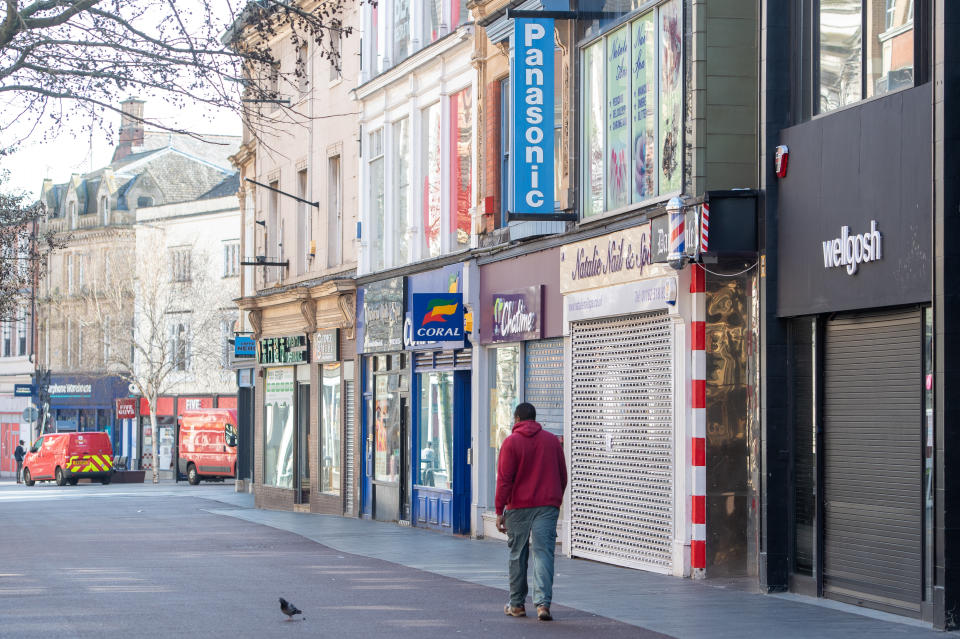UK high street struggling even before the coronavirus crisis hit

Retail sales in the UK were tumbling even before the coronavirus crippled the UK high street, official figures show.
The amount spent by shoppers in February was down 0.5% and the volume of products bought down 0.3% on the previous month, according to the Office for National Statistics (ONS) on Thursday.
The volume of sales in February was also no higher than a year earlier, the lowest growth rate in seven years. Several retailers blamed heavy rain and highlighted some disruption to Chinese supply chains at the time.
But the ONS said when the figures were collected, retailers had been “largely unaffected” by recent coronavirus developments.
Read more: Shoppers warned UK food prices could rise despite fall in overall inflation
Now experts are warning the coronavirus and government lockdown in Britain and its trading partners could trigger the worst UK recession in modern history, with many retailers taking a particular hit.
Many stores have since been left unable to trade after prime minister Boris Johnson ordered non-essential stores to close on Monday. Only those dubbed “essential” can continue to operate, and some retailers’ decisions to remain open have sparked controversy.
A large number are expected to rely on the wide-ranging package of economic support measures unveiled by the UK government in the past fortnight. They are designed to keep retailers, hospitality firms and other businesses afloat during the unprecedented shutdown.
Read more: B&Q shuts stores as anger grows at shops trading despite UK lockdown
Business rate holidays, state-backed loans, grants and support paying wages of staff who would otherwise be laid off have been announced by chancellor Rishi Sunak.
The figures come a day after separate official data showed the rate of inflation had dropped slightly as oil prices (BZ=F, CL=F) have tumbled.
Average prices for common goods and services in Britain were up 1.7% in February compared with a year earlier, in line with analysts’ forecasts and down from 1.8% in January.
One analyst predicted a collapse in demand for many products and falling real wages would limit firms including retailers’ ability to raise prices. Ruth Gregory, an economist at Capital Economics, predicted inflation would fall below 1% in the months ahead.
Another survey released this week suggests UK business activity has nosedived at a faster rate in the past month than at the height of the financial crisis more than a decade ago.
The slowdown between February and March marks the sharpest monthly decline on the flash composite UK purchasing managers’ index (PMI) since IHS Markit began collecting thein 1998.
Both manufacturing and the UK’s dominant services sector, including everything from banking to retailers, have suffered sudden and steep declines in work. Firms say demand for goods and services has collapsed as growing numbers of firms and households shut their doors.

 Yahoo Finance
Yahoo Finance 